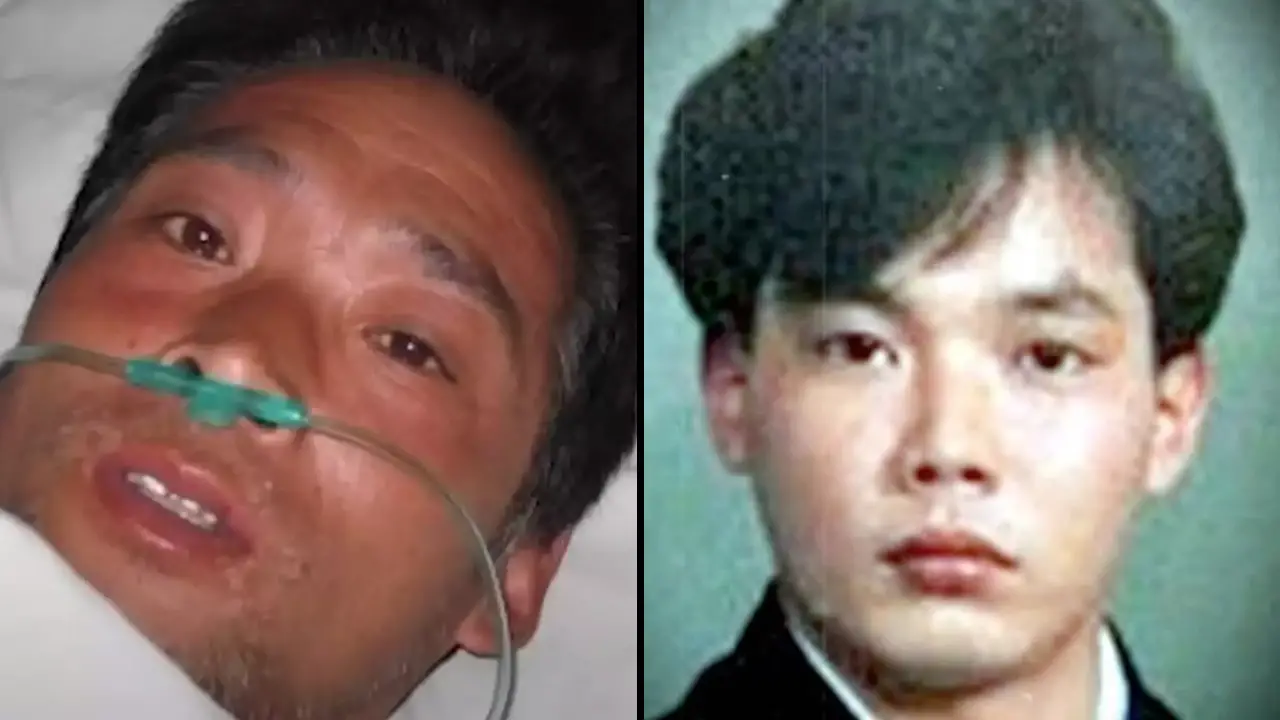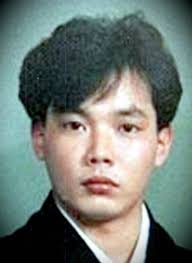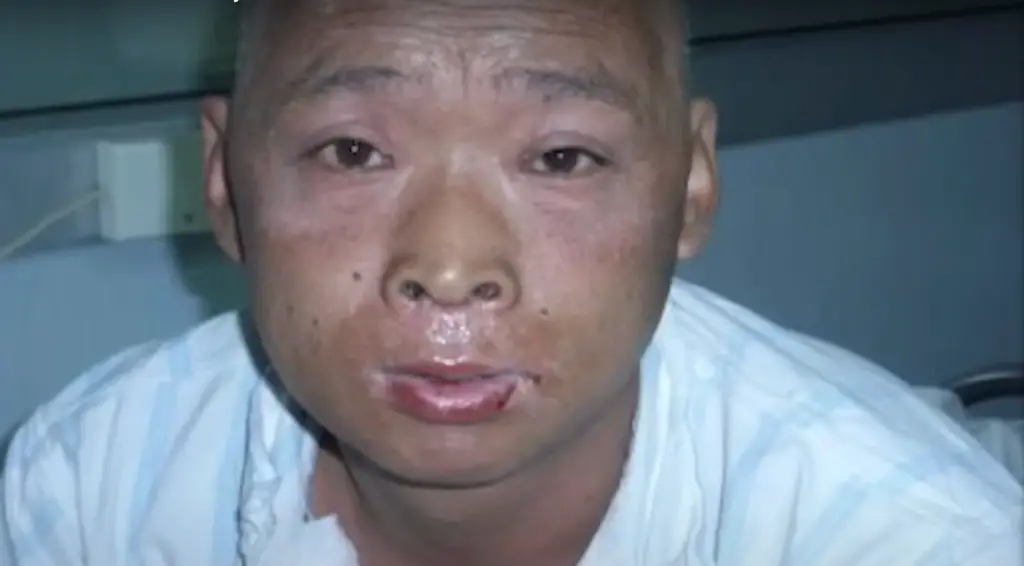
Credit: Public Domain
Man Burned ‘From Inside Out’ In Most Excruciating Death Known To Humankind
A man who burned ‘from the inside out’ is said to have suffered the most excruciating death known to humankind.
Hisashi Ouchi, a nuclear plant worker from Japan, was exposed to a record-breaking dose of radiation in an accident that would lead to a slow and agonizing decline.
The 35-year-old’s body underwent horrific transformations as it lost the ability to regenerate cells, leaving him in a state of irreversible deterioration.

The accident took place on September 30, 1999, at a uranium processing facility in Tokaimura, about 70 miles northeast of Tokyo, How Stuff Works reports.
Ouchi and his colleagues, Masato Shinohara and Yutaka Yokokawa, were working together to prepare nuclear fuel.
In a critical mistake, the team added 16kg of uranium into a processing container – far exceeding the safety limit of 2.4kg.
Almost immediately, a sudden blue flash filled the room, a sign of a dangerous nuclear reaction.
Radiation alarms blared, and all three workers became instantly ill.
Ouchi, who had been standing directly over the processing container, received a staggering dose of 17,000 millisieverts (mSv) of radiation – the highest level ever recorded in a single exposure.
For context, the safety limit for workers dealing with radiation is 20 mSv per year, while 5,000 mSv is considered fatal.
Shinohara was exposed to 10,000 mSv, while Yokokawa, who had been sitting further away at a desk, absorbed around 3,000 mSv.
Emergency services rushed all three men to the hospital, but the true extent of the damage would only become clear in the following days.

Despite appearing relatively stable at first, Ouchi’s condition quickly worsened.
His body’s ability to produce new cells was destroyed, leading to catastrophic tissue damage.
Large sections of his skin peeled away, and as the days passed, his wounds deepened.
Ouchi’s lungs filled with fluid, making it increasingly difficult for him to breathe.
He was eventually placed on a ventilator, but his suffering did not stop there. His digestive system also began to break down, preventing him from absorbing food or medication.
This resulted in severe gastrointestinal distress, and he suffered from extreme pain and relentless diarrhea, excreting up to three liters per day.
Doctors attempted several experimental treatments, including skin grafts and stem cell transplants, but none were successful.
His exposed flesh continued to leak bodily fluids, and even powerful painkillers failed to provide relief.

One of the most distressing developments came when Ouchi’s eyelids fell off, leaving his eyes unprotected and painfully dry.
Reports from the time claim that he began ‘crying blood’ and at one point begged the doctors to stop treating him.
By day 59, his heart stopped, but per his family’s request, doctors resuscitated him three times.
His body, however, was beyond saving, and the prolonged medical intervention only extended his suffering.
Finally, after enduring 83 excruciating days in the hospital, Ouchi died from multiple organ failure on December 21, 1999.
His colleague Shinohara died months later in April 2000, while Yokokawa survived after spending three months in the hospital with only minor radiation sickness.
The accident led to significant changes in Japan’s nuclear safety regulations, serving as a stark reminder of the devastating consequences of radiation exposure.
Related Article: Five Divers Suffered ‘Worst Death Imaginable’ In Chilling Oil Rig Accident
Related Article: Death Row Inmate Suffered ‘Excruciating’ Death After Making Last Meal ‘Mistake’
Want more stuff like this?
Get the best viral stories straight into your inbox!